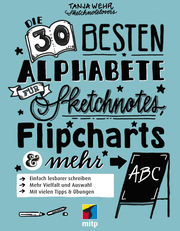Beschreibung
The intersections of aging, media, and culture are under-explored given trends in population aging, rapid increases in the mediation of everyday life, and the growing cultural significance of media consumption at the global level. This book brings together an international collection of critical scholars, both well-established and up-and-coming, from the various academic disciplines that share a common interest in the future study of aging and media. This anthology of original articles integrates aging theory and media studies through a study of core issues including the medias influence on the construction of old age, the reciprocal influence of aging on media industries, age-based identities in a mediated world, issues of gender and sexuality in an aging society, and the practical implications of a more integrated approach between the two fields. The chapters explore the intersections between aging and media in the realms of advertising/marketing, television, film, music, celebrity and social media, among others.
Autorenportrait
C. Lee Harrington is professor of sociology and affiliate of the Womens, Gender, and Sexuality Studies Program at Miami University.Denise D. Bielby is professor of sociology and affiliated faculty in the Department of Film& Media Studies at the University of California, Santa Barbara.Anthony R. Bardo is a doctoral candidate in social gerontology at Miami University.
Inhalt
ContentsIntroduction1. New Areas of Inquiry in Aging, Media, and Culture -C. Lee Harrington, Denise D. Bielby and Anthony R. BardoSection I. Advertising and Marketing2. Aspiration and Compromise: Portrayals of Older Adults in Television Advertising -Shyon Baumann and Kim de Laat3. Forever Young: The New Aging Consumer in the Marketplace -Anne L. BalazsSection II. Age Identities4. Reflections of Old Age, Constructions of Aging Selves: Drawing Links between Media Images and Views of Aging -Anne E. Barrett, Alex Raphael, and Justine Gunderson5. Age and Gender in Film and Television: The Case of Huong Hoang -Anthony R. BardoSection III. Celebrity6. Growing Old in Celebrity Culture -Hilde Van den Bulck7. Social Meaning of Celebrities in the Everyday Lives of Nursing Home Residents: An Exploratory Study -Nathalie ClaessensSection IV. Music8. Music, Performance and Generation: The Making of Boomer Rock and Roll Biographies -Stephen Katz9. The Long Strange Trip Continues: Aging Deadheads -Rebecca G. Adams, and Justin T. HarmonSection V. Fandom10. A Life Course Perspective on Fandom -C. Lee Harrington and Denise D. Bielby11. Breaking Dusk: Fandom, Gender/Age Intersectionality, and the Twilight Moms -Christine ScodariSection VI. Gender and Sexuality12. Lets do it Like Grown-Ups: A FilmicMènage of Age, Gender, and Sexuality -Leni Marshall and Aagje Swinnen13. Sexualizing the Third Age -Barbara L. MarshallSection VII. Social/New Media14. Learning New Tricks: The Use of Social Media in Later Life -Kelly Quinn15. Polite Pigs and Emotional Elves: Age in Digital Worlds -Rosa Mikeal MarteyAfterwords16. Time to Grow Up: The Study of Media and Aging as a Field in its Infancy -Cornel Sandvoss17. A View from Gerontology -Merril Silverstein
E-Book Informationen
„eBooks“ sind digitale Bücher. Um eBooks lesen zu können, wird entweder eine spezielle Software für Computer, Tablets und Smartphones oder ein eBook-Reader benötigt. Da es eBooks in unterschieldichen Formaten gibt, gilt es, folgendes zu beachten.
Von uns werden digitale Bücher in drei Formaten ausgeliefert. Die Formate sind EPUB mit DRM (Digital Rights Management), EPUB ohne DRM und PDF. Bei den Formaten PDF und EPUB ohne DRM müssen Sie lediglich prüfen, ob Ihr eBook-Reader kompatibel ist. Wenn ein Format mit DRM genutzt wird, besteht zusätzlich die Notwendigkeit, dass Sie einen kostenlosen Adobe® Digital Editions Account besitzen. Wenn Sie ein eBook, das Adobe® Digital Editions benötigt, herunterladen, erhalten Sie eine ASCM-Datei, die zu Digital Editions hinzugefügt und mit Ihrem Account verknüpft werden muss. Einige eBook-Reader (zum Beispiel PocketBook Touch) unterstützen auch das direkte Eingeben der Login-Daten des Adobe Accounts – somit können diese ASCM-Dateien direkt auf das betreffende Gerät kopiert werden.
Da eBooks nur für eine begrenzte Zeit – in der Regel 6 Monate – herunterladbar sind, sollten Sie stets eine Sicherheitskopie auf einem Dauerspeicher (Festplatte, USB-Stick oder CD) anlegen. Außerdem ist die Anzahl der Downloads auf maximal 5 begrenzt.








